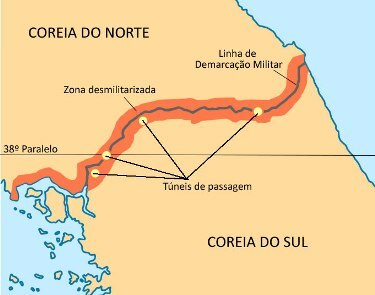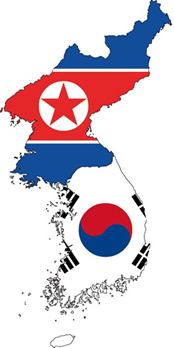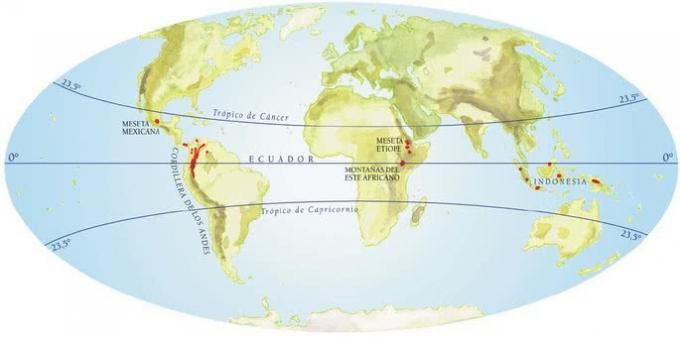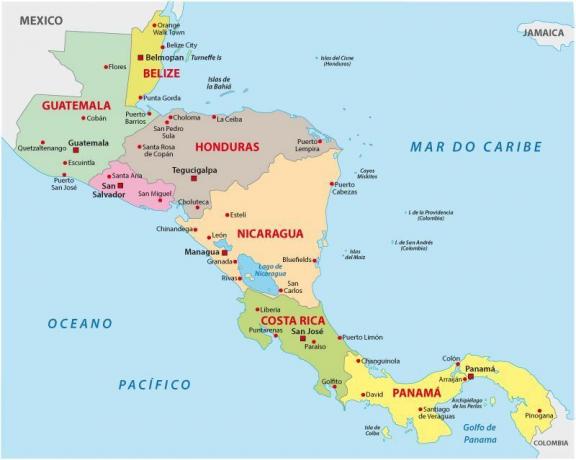The division of Korea between south and north is by far the most expressive legacy of the Cold War and the Bipolar World Order. Marked by the direct influences of the Soviet Union and the United States, North Korea and South Korea maintained very small diplomatic relations that, with the recent decisions and positions of the North, have become null.
There is speculation that North Korea's offensive posture would be a "bluff", a bold move to make the economic blockade and international sanctions imposed on the country lessen or were over.
The trigger for the rise of diplomatic tensions between the two Koreas took place from February 12th from 2013, when North Korea carried out the third nuclear test in its history, the first ever. recent. This means that the country has abandoned the defensive posture it has been adopting in recent years in the face of international requirements for the country to stop producing and storing weapons and equipment nuclear weapons.
The test was not free, it is a response by the North Korean government to the expansion of trade sanctions imposed on the country. by the UN Security Council and by the international blockades carried out by the USA in order to hinder the proliferation of nuclear weapons in the country.
Immediately after confirmation that the nuclear tests had been carried out, the international community fiercely condemned the North Korean regime, particularly the US and South Korea. The South Koreans promised their neighbors tough and direct responses if any direct attacks were planned and/or carried out.
To understand: division and Korean War and the Armistice of Panmunjon
With the end of World War II, the territory of Korea – then under the influence of Japan, defeated alongside of the Axis countries – was divided under the influence of the United States, to the south, and the USSR and China, to the north. The idea was that this division would be temporary and that the population of the two countries would be responsible for the decision on reunification, which never happened because of the tensions and conflicts in times of war Cold.
In 1950, the Korean War broke out (1950-1953), when North Korean troops attacked the south by surprise, invading and occupying the capital Seoul. The South Koreans responded to the attack with troops sent by General Douglas McArthur, a battle in which they achieved victory and the disengagement of the invaded territory.
With the South Korean offensive, China intervened in the combat, directly helping North Korea. On July 27, 1953, an armistice was signed in the city of Panmujon, the boundary between the two countries, where a ceasefire was agreed and the end of a war that left many dead and none winner. In this way, the division of the Koreas within the limits of the 38th parallel was established, as can be seen in the map below:

North Korea claims to consider Panmujon's armistice "completely void"
On March 11, 2013, the government of North Korea, represented by the figure of dictator Kim Jong-Um, claimed not to recognize the armistice of Panmujon, who was responsible for ending the War of the Koreas. Kim Jong-Um's justification was that the country could not consider a ceasefire because of military exercises carried out jointly between South Korean and US troops.
South Korea responded by claiming that the treaty could not be broken as, according to the document signed by the two parties, the end of the ceasefire could only occur by agreement of both parts.
Do not stop now... There's more after the advertising ;)
At that moment, for the South Koreans, the possibility of a war would be ruled out, but the political situation between the two countries would worsen even more in the following days.
March 30, 2013: North Korea declares a state of war
On March 30, North Korea claimed to have entered a “State of War” against South Korea and the United States, considering the possibility of a major combat against the two countries.
In response, South Korea stated that it authorized its army to respond harshly in the event of a direct attack, thus increasing the possibility of a new war between the countries. In addition, the US also mobilized troops and a warship to the Korean peninsula.
In the following days, North Korea recommended that the embassies installed in the country provide plans to withdraw in order to facilitate escape in the event of a war.
Myths and truths about North Korea
Contrary to what many newspapers, some analysts and even political scientists claim, in North Korea there is no communism, but a dictatorial regime of planned economy, that is, with full intervention and control of the economy by the State through a large number of state-owned companies. In addition, there is in the country the formation of elites that control and dictate the political and economic directions, far from the Marxist ideals for socialism and communism.
Is it possible to break out a nuclear war in the Korean War? The possibility of a Nuclear War between the Koreas does exist – due to the fact that they both have nuclear weapons – but this is completely unlikely. Nuclear attacks between both parties would be extremely harmful to both: imagine a nuclear attack by the North Koreans on Seoul that remains just 200 km from the country, the radiation and consequences of the attack would certainly also be severely felt by those who carried out the attack.

The possibility of a nuclear war between the Koreas is small¹
An atomic attack by North Korea on the United States is possible? No, because the North Koreans do not have enough technology for this, as the missiles with longer range would reach, at most, Alaska, a sparsely inhabited region of the United States. Furthermore, such missiles would be easily identified and shot down in airspace.
After all, is an international war possible in Asia? Yes. Recently, North Korea has also threatened to attack and completely “destroy” Japan. Should that happen – and it could actually happen – the US would go to war with North Korea and, most likely, China would also join the conflict or send troops, aid or weapons to North Korea, because of the political and economic relations of the two countries and their relations of interdependence.
Perhaps that's why China has issued statements of dissatisfaction with the North Koreans' bold and offensive stance. Apparently concerned about a possible nuclear fight, the Chinese fear the tremor of trade relations with Europe and, mainly, with the USA, which would lead to a great flight of capital from the country and a political and economic instability without precedents.
––––––––––––––––––
¹Image credits: Rishabh Tatiraju
By Rodolfo Alves Pena
Graduated in Geography
South Korea's Foreign Minister, Yun Byung himself, said on Wednesday (10) that he had requested mediation from Russia and the China to try to convince North Korea to end its military provocations at a time of heightened tension in the Peninsula Korean.
"Through close collaboration with Russia and China, the South Korean government continues to make efforts to persuade North Korea to change its attitude," Yun said during a parliamentary committee, in statements released by the agency "Yonhap".
G1, 10/04/2013. South Korea asks for mediation by Russia and China to contain the North. Available in: G1. Globe
Regarding the “time of high tension in the Korean Peninsula”, mentioned in the text, tick the alternative correct:
a) The tension between the Koreas is due to the fact that the socialist South threatens the outbreak of war if the North does not give up part of its territory.
b) The tension mentioned in the text refers to the geopolitical instability established between the Koreas after the North carried out new tests of having threatened the outbreak of a new war between the two countries if the economic blockade imposed by the US and the UN is not broken.
c) South Korea's request for the intervention of Russia and China is due to the fact that these two countries are the North Korea's biggest enemies, which could divert the focus of that country, which would forget its enemies of the South.
d) The "military provocations" referred to in the text are the frequent mockery elaborated by the North Korean government in order to provoke a instability in the relationship between the two countries, causing other nations to intercede and fight any attacks carried out by Korea. South.



